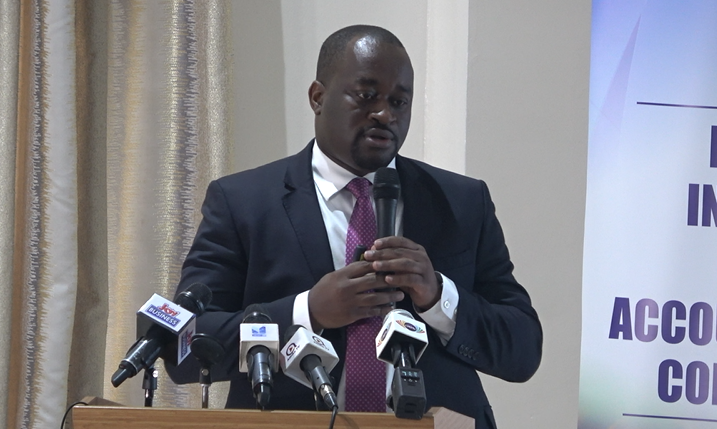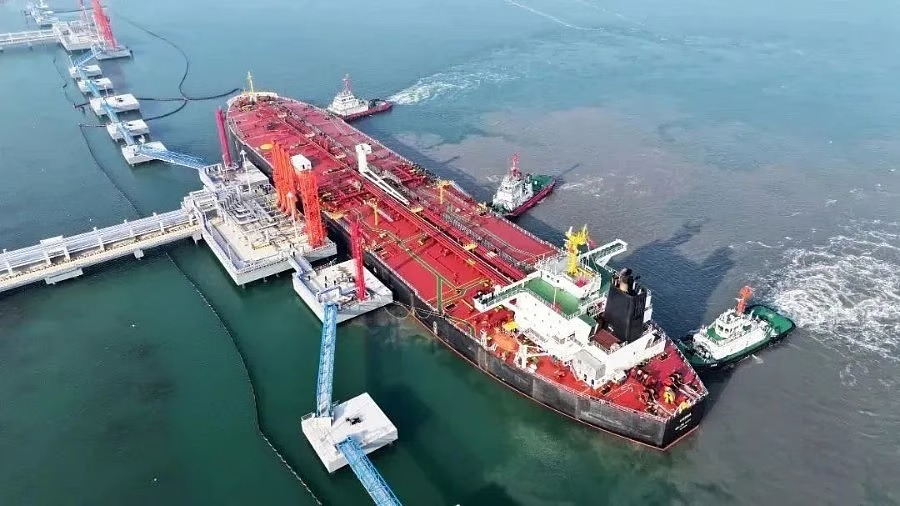Petroleum Economist and Political Risk Analyst, Dr. Theo Acheampong has revealed that Ghana faces minimal fiscal risk from the Iran-Israel conflict due to falling oil prices, improved forex buffers, and prudent macroeconomic policies.
Speaking at a policy roundtable titled “Oil Wars, Broken Systems: What The Iran-Israel Conflict Really Means for Ghana’s Revenue, Reserves & Reform Path,” Dr. Acheampong offered a cautiously optimistic outlook for Ghana’s short-term economic prospects.
“Whereas you were looking at a major global event every five to eight years, we’re now seeing them every two or so years – COVID-19, the Russia-Ukraine war, Iran-Israel tensions.
“But the oil market has largely priced in the current conflict, and the ceasefire appears to be holding.”
Dr. Theo Acheampong, Petroleum Economist and Political Risk Analyst
Oil prices, which had surged in the early stages of the Iran-Israel missile exchanges, have cooled significantly in recent weeks. Brent crude is now trading at around $68 per barrel, down from nearly $80 during the peak of the conflict scare.
That’s a far cry from the highs of $140+ per barrel seen during the early months of the Russia-Ukraine war in 2022.
“The futures market doesn’t expect the Iran-Israel conflict to escalate significantly.
“Crucially, major Iranian energy infrastructure has not been targeted. That’s key.”
Dr. Theo Acheampong, Petroleum Economist and Political Risk Analyst
This drop in prices, he said, is positive for Ghana, which remains a net importer of refined petroleum products despite being a crude oil producer.
Balancing the Fiscal Equation

Ghana’s 2025 budget was crafted using a conservative oil price benchmark of $74.70 per barrel, meaning the current price levels could reduce the country’s oil export earnings. However, Dr. Acheampong pointed out that the lower import costs could result in a net gain for the economy.
“While our crude entitlement earnings may drop slightly, lower prices on the import side mean we could actually save more.
“Citizens could benefit at the pump—if the cedi holds steady and no new petroleum taxes are imposed.”
Dr. Theo Acheampong, Petroleum Economist and Political Risk Analyst
According to Bank of Ghana data, petroleum products make up a significant portion of Ghana’s $17 billion annual import bill. Reduced global oil prices may thus help preserve foreign exchange reserves and reduce inflationary pressure, especially on fuel and transport costs.
In his presentation, Dr. Acheampong highlighted five major channels through which international conflicts affect Ghana’s economy: disruptions in global trade, volatility in commodity prices, pressures on the exchange rate, instability in financial markets, and the transmission of imported inflation.
“These risks are real, but so far, their actual impact has been muted.
“This time is different. The country has built better buffers in the form of gold reserves, improved fiscal controls, and more cautious spending.”
Dr. Theo Acheampong, Petroleum Economist and Political Risk Analyst
Ghana’s gold reserves, in particular, have surged in value as investors globally move toward safer assets during times of geopolitical uncertainty. With gold now trading above $3,000 per ounce, Ghana stands to benefit as a top gold-exporting nation.
Warnings on Energy Reform and Structural Weakness

Despite the relatively benign short-term impact, Dr. Acheampong issued a strong caution against complacency. He said the Iran-Israel conflict, while not catastrophic for Ghana today, highlights ongoing structural weaknesses that must be urgently addressed.
“This crisis underscores the urgency of fixing structural weaknesses in Ghana’s energy sector as well as the need for broader economic diversification.”
Dr. Theo Acheampong, Petroleum Economist and Political Risk Analyst
He urged policymakers to accelerate reforms in the energy sector, particularly addressing tariff misalignments, collection inefficiencies, and the persistent debt burdens plaguing power utilities. “You can’t shield yourself entirely from global shocks unless domestic buffers are strong and institutions function properly,” Dr. Acheampong emphasized.
While Ghana may escape the worst of the current oil market volatility, the underlying message from Dr. Acheampong is clear: resilience must be built, not assumed.
With geopolitical risks becoming more frequent and unpredictable, strong institutions, sound macroeconomic policy, and proactive structural reforms will determine how well Ghana weathers future storms.
Dr. Acheampong stressed, “The real test lies in our ability to transform these buffers into lasting resilience.” In the short term, easing oil prices and prudent management have created a buffer.
READ ALSO: Sixty Years Strong: ADB Ushers in a New Era of Agribusiness with “Beyond Banking” Vision



















